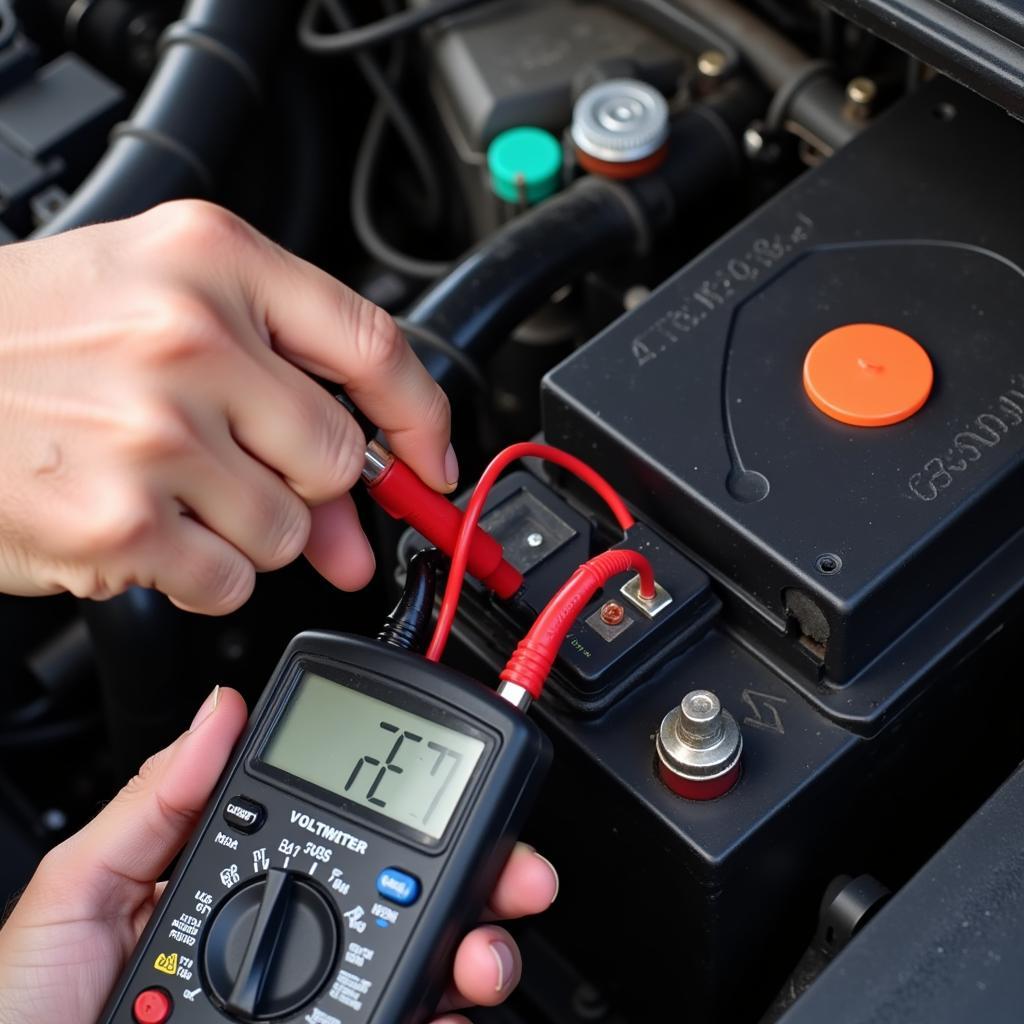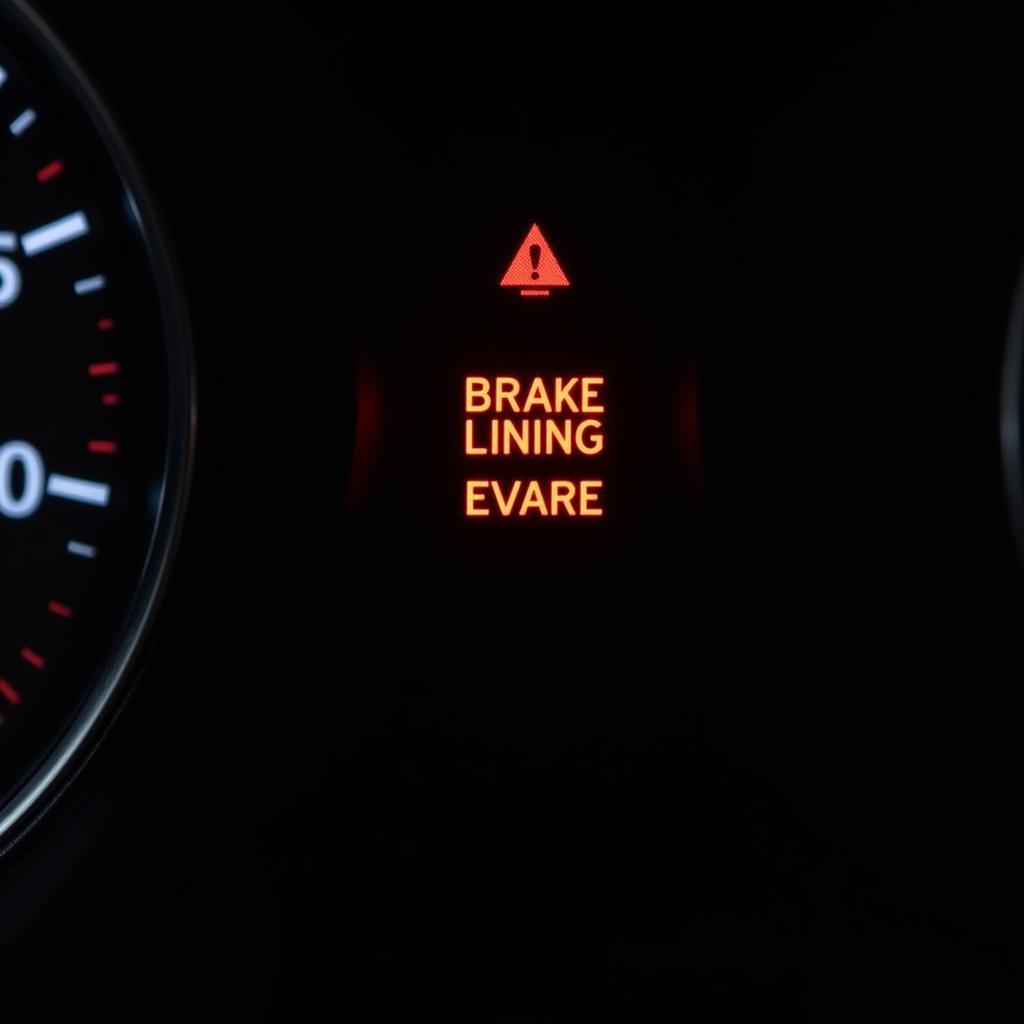A bad car battery can leave you stranded and frustrated. Understanding the signs of a failing battery and knowing how to troubleshoot the issue can save you time, money, and a whole lot of hassle. This comprehensive guide will cover everything you need to know about bad car batteries, from identifying the symptoms to finding the right solutions.
Identifying a Bad Car Battery: Common Signs
Several tell-tale signs indicate your car battery might be on its last leg. These can range from obvious issues like a clicking sound when you turn the key to more subtle symptoms that require a bit more investigation. Some of the most common signs of a bad car battery include:
- Slow Cranking: The engine cranks slowly or struggles to turn over.
- Dim Headlights: Headlights appear dimmer than usual, especially when the engine is idling.
- Clicking Sound When Starting: A rapid clicking sound when you turn the key indicates a low battery charge.
- Dashboard Warning Lights: The check engine light or battery light might illuminate.
- Electrical Issues: Problems with power windows, radio, or interior lights.
- Swollen Battery Case: Excessive heat can cause the battery case to swell or bulge.
- Rotten Egg Smell: A sulfurous smell indicates a leaking battery.
If you notice any of these signs, it’s crucial to address the issue promptly. bad car battery signs Ignoring a failing battery can lead to more significant problems down the road.
Troubleshooting a Bad Car Battery: DIY Diagnostics
Before rushing to replace your battery, some simple diagnostic steps can help confirm the issue.  Testing a Car Battery with a Multimeter
Testing a Car Battery with a Multimeter
- Visual Inspection: Check for corroded terminals, cracks in the case, and low electrolyte levels.
- Voltage Test: Use a multimeter to check the battery voltage. A fully charged battery should read around 12.6 volts.
- Load Test: A load test, performed with a specialized tool, measures the battery’s ability to hold a charge under load.
These tests can help determine whether the battery is the culprit or if another issue, like a faulty alternator, is to blame. bad car battery or alternator
Why is my car battery bad? Common Causes
Understanding why car batteries fail can help you prevent future issues. Several factors contribute to battery failure:
- Age: Car batteries typically last 3-5 years.
- Extreme Temperatures: Both extreme heat and cold can shorten battery life.
- Parasitic Drain: Electrical components drawing power even when the car is off.
- Overcharging or Undercharging: A faulty alternator can lead to overcharging or undercharging.
- Corrosion: Corroded terminals can prevent proper electrical connections.
Addressing these issues can help prolong your battery’s lifespan and prevent unexpected breakdowns. effects of a bad car battery
How do I fix a bad car battery?
The solution for a bad car battery often involves replacement. However, some issues, like corroded terminals, can be resolved with cleaning.
- Jump Starting: Jump starting can provide a temporary solution but doesn’t fix the underlying issue.
- Battery Replacement: Replacing the battery is often the most effective solution.
- Professional Assistance: A qualified mechanic can diagnose and address more complex electrical issues.
“Regular battery maintenance, such as cleaning terminals and checking electrolyte levels, can significantly extend its lifespan,” says automotive expert, John Smith, ASE Certified Master Technician.
Bad Car Battery vs. Bad Alternator
Sometimes, symptoms of a bad battery can mimic a faulty alternator. bad alternator vs battery Distinguishing between the two is crucial for accurate diagnosis.
- Battery Issue: If the car starts after a jump but dies again quickly, the battery is likely the problem.
- Alternator Issue: If the car continues running after a jump but the battery doesn’t hold a charge, the alternator might be faulty. signs of a bad car battery voltage
“A simple test to determine if the alternator is functioning is to check the battery voltage while the engine is running. It should be around 14 volts. If it’s significantly lower, the alternator may be failing,” adds Jane Doe, Electrical Systems Engineer.  Testing a Car Alternator
Testing a Car Alternator
Conclusion
Dealing with a bad car battery can be a frustrating experience. However, by understanding the signs, troubleshooting the problem, and taking preventive measures, you can keep your car running smoothly. Remember that regular maintenance can significantly extend your battery’s lifespan and save you from unexpected breakdowns. If you’re unsure about diagnosing or fixing the issue yourself, seeking professional help is always recommended. Don’t let a bad car battery leave you stranded; take proactive steps to ensure your car is always ready to go.

